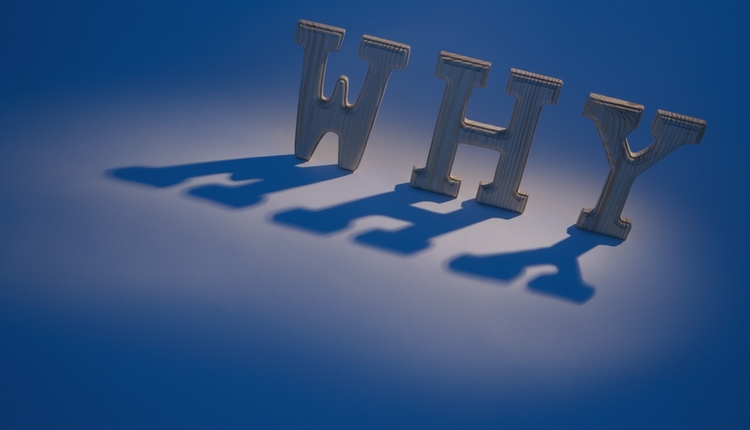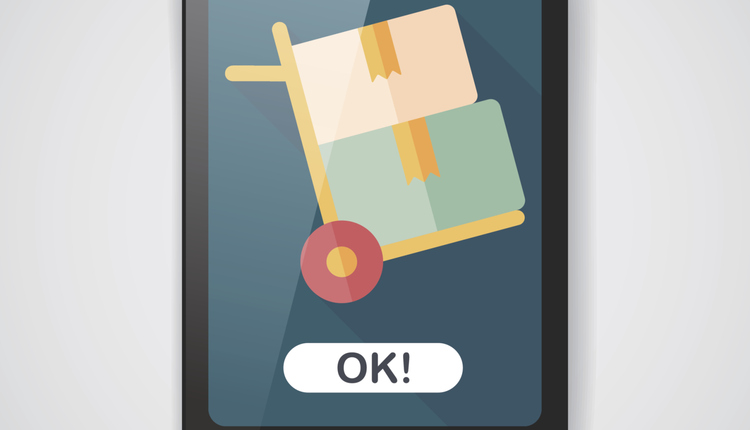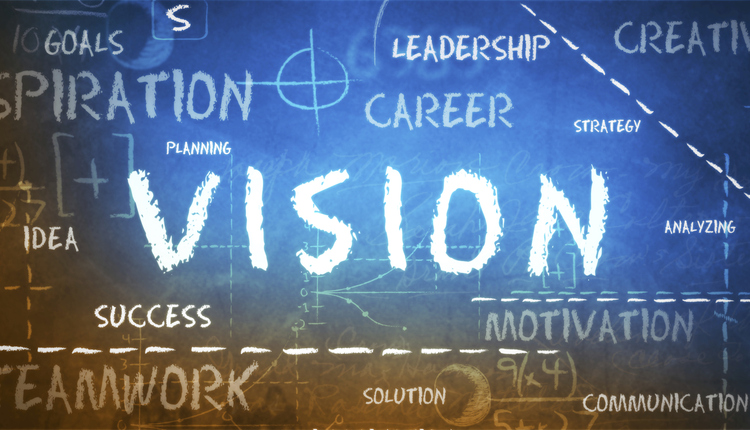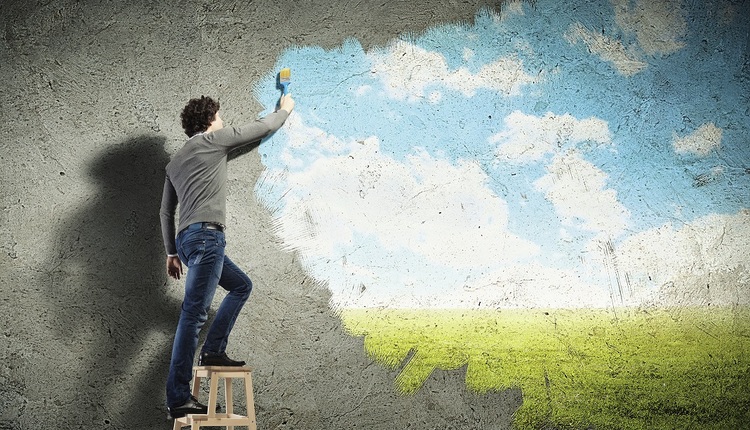Ask just about any producer of high volume transactional documents and they will tell you they wish more of their customers would migrate to paperless delivery. That's not so surprising. Given the large gap in production and delivery costs between paper and electronic documents, every customer who suppresses paper represents hard-dollar savings.
What is surprising is that most companies will look you straight in the eye and then go about promoting the idea that consumers should abandon that old, wasteful print channel in favor of something better. Because in most cases, it's not better! At least not for the customer. Maybe that explains why paperless adoption seems to plateau for most organizations at levels below their desired goals.
The people who still prefer print today are not stodgy, unbending, give-me-the-good-old-days non-conformists. They just find the alternative delivery channels lacking in some way. Usually what is missing is convenience.
People will change if there's a good reason. They will quickly replace decades-old habits for something better. Making the change has little to do with their overall comfort with modern innovations. It has nothing to do with saving the environment. Sometimes there is a monetary incentive, but that isn't always the case either. Nope, the big reason humans abandon the old for the new is convenience.
What is surprising is that most companies will look you straight in the eye and then go about promoting the idea that consumers should abandon that old, wasteful print channel in favor of something better. Because in most cases, it's not better! At least not for the customer. Maybe that explains why paperless adoption seems to plateau for most organizations at levels below their desired goals.
The people who still prefer print today are not stodgy, unbending, give-me-the-good-old-days non-conformists. They just find the alternative delivery channels lacking in some way. Usually what is missing is convenience.
People will change if there's a good reason. They will quickly replace decades-old habits for something better. Making the change has little to do with their overall comfort with modern innovations. It has nothing to do with saving the environment. Sometimes there is a monetary incentive, but that isn't always the case either. Nope, the big reason humans abandon the old for the new is convenience.
Myth: People that are comfortable with paper won't change
When was the last time you looked up a business in the phone book? Remember when the Yellow Pages were the most reliable and current source for contact information, hours, and services? We still get three or four versions of Yellow Pages delivered to our home every year. The only thing I use them for these days are doorstops. They never even make it out of the shrink-wrap. Instead, it is the internet (and more often than not the smart phone) that provides the kind of information I need. The net gives me all the data the phone book did plus tons more. Even though we had a long history with a familiar solution, we stopped using paper phone books because better alternatives were developed.
How about Daytimers, Rolodexes, or those spring-loaded telephone directories? Why don't we use them anymore? It's because databases on our phones, our computers, or in the cloud are more convenient. We can get the number for friends, relatives, and business associates without having to rely on the paper-based solution sitting back in the office. Heck, we don't even have to dial the digits today! The bad part is that I can't recall anyone's number by memory anymore. If my phone battery is dead, I'm sunk! But there's no way I'm going back to a Rolodex.
Remember MapQuest? Getting driving directions and a customized map to take with you in the car was a huge improvement over the Thomas Guide or folding maps from the gas station. MapQuest is still around but I never print a map or directions anymore. The navigation system in my car makes that unnecessary. Same thing with boarding passes for the airlines. I'll print them out from home for my outbound flight because the printer is right there in the office. But coming back, I'll go with the electronic boarding pass on the smart phone pretty much every time. It's a lot better than hunting down a working printer in the hotel business center or waiting for my turn at an airport kiosk behind a bunch of neophyte travelers that take forever to check in families of eight. In both these examples, the electronic versions provided benefits that far exceeded the printed paper solutions they replaced. It didn't take consumers long to abandon the familiar maps and boarding passes when they discovered they could use something better, with a minimum of hassle.
Are paperless documents really easier for consumers?
My point here is that the reason more consumers don't opt out of printed bills and statements is because the alternative is either less convenient or the advantages to electronic delivery are not great enough to make changing worthwhile. Once there is a clear advantage, people will jump on the band wagon. But until then, no amount of statement messages, bill stuffers, envelope overprints, or on-hold messages pleading them to save the environment is going to make them change. Who wants to fire up the browser, navigate to the proper web page, and try to remember the credentials just to see the statement? Not me. Not when my postal carrier will deliver documents from any mailer directly to me. A box on a post is my bill-consolidation site and it is working just fine.
Like most people I know, I pay my bills online. I rarely write checks anymore. Why? Because paying online is faster and easier. It saves me from spending money on check printing. It also preserves my stash of Forever stamps that continue to increase in value. Even though it can sometimes be a hassle to log into websites and enter payment information, it is still better than writing checks. So I switched. The internet has improved the payment side of billed transactions. The presentment side? Not so dramatically.
Bill consolidators and services like digital mail boxes promised to create centralized repositories so that we didn't have to log into all those separate web sites. But we'll still have to log into the consolidated digital mailbox multiple times. Our bills don't all come on the same day, so even if all the bills were available in one central location (and we're a long way from that scenario) it still takes about the same amount of effort to retrieve them as it does today from the individual biller-hosted sites. Maybe that's why consumers aren't clamoring for such a service. None of the digital mailbox solutions has really taken off from a consumer-adoption standpoint.
Like most of the people that read this publication I have an affinity for printed and mailed documents. In one way or another, working with physical documents has been my livelihood for almost my entire career. I am probably more committed to paper than the average consumer. Even so, I would probably switch to electronic versions if it made my life easier. So far though, that hasn't happened for me. I think I have lots of company.
Mike Porter is an expert in Print and Mail operations and President of Print/Mail Consultants, an independent consulting firm that helps companies nationwide lower costs and integrate new technologies in their document production workflows. For more of his thoughts and ideas visit www.printmailconsultants.com and sign up for Practical Stuff - the free newsletter for document operations. Your comments are welcome. Send them to mporter@printmailconsultants.com.
When was the last time you looked up a business in the phone book? Remember when the Yellow Pages were the most reliable and current source for contact information, hours, and services? We still get three or four versions of Yellow Pages delivered to our home every year. The only thing I use them for these days are doorstops. They never even make it out of the shrink-wrap. Instead, it is the internet (and more often than not the smart phone) that provides the kind of information I need. The net gives me all the data the phone book did plus tons more. Even though we had a long history with a familiar solution, we stopped using paper phone books because better alternatives were developed.
How about Daytimers, Rolodexes, or those spring-loaded telephone directories? Why don't we use them anymore? It's because databases on our phones, our computers, or in the cloud are more convenient. We can get the number for friends, relatives, and business associates without having to rely on the paper-based solution sitting back in the office. Heck, we don't even have to dial the digits today! The bad part is that I can't recall anyone's number by memory anymore. If my phone battery is dead, I'm sunk! But there's no way I'm going back to a Rolodex.
Remember MapQuest? Getting driving directions and a customized map to take with you in the car was a huge improvement over the Thomas Guide or folding maps from the gas station. MapQuest is still around but I never print a map or directions anymore. The navigation system in my car makes that unnecessary. Same thing with boarding passes for the airlines. I'll print them out from home for my outbound flight because the printer is right there in the office. But coming back, I'll go with the electronic boarding pass on the smart phone pretty much every time. It's a lot better than hunting down a working printer in the hotel business center or waiting for my turn at an airport kiosk behind a bunch of neophyte travelers that take forever to check in families of eight. In both these examples, the electronic versions provided benefits that far exceeded the printed paper solutions they replaced. It didn't take consumers long to abandon the familiar maps and boarding passes when they discovered they could use something better, with a minimum of hassle.
Are paperless documents really easier for consumers?
My point here is that the reason more consumers don't opt out of printed bills and statements is because the alternative is either less convenient or the advantages to electronic delivery are not great enough to make changing worthwhile. Once there is a clear advantage, people will jump on the band wagon. But until then, no amount of statement messages, bill stuffers, envelope overprints, or on-hold messages pleading them to save the environment is going to make them change. Who wants to fire up the browser, navigate to the proper web page, and try to remember the credentials just to see the statement? Not me. Not when my postal carrier will deliver documents from any mailer directly to me. A box on a post is my bill-consolidation site and it is working just fine.
Like most people I know, I pay my bills online. I rarely write checks anymore. Why? Because paying online is faster and easier. It saves me from spending money on check printing. It also preserves my stash of Forever stamps that continue to increase in value. Even though it can sometimes be a hassle to log into websites and enter payment information, it is still better than writing checks. So I switched. The internet has improved the payment side of billed transactions. The presentment side? Not so dramatically.
Bill consolidators and services like digital mail boxes promised to create centralized repositories so that we didn't have to log into all those separate web sites. But we'll still have to log into the consolidated digital mailbox multiple times. Our bills don't all come on the same day, so even if all the bills were available in one central location (and we're a long way from that scenario) it still takes about the same amount of effort to retrieve them as it does today from the individual biller-hosted sites. Maybe that's why consumers aren't clamoring for such a service. None of the digital mailbox solutions has really taken off from a consumer-adoption standpoint.
Like most of the people that read this publication I have an affinity for printed and mailed documents. In one way or another, working with physical documents has been my livelihood for almost my entire career. I am probably more committed to paper than the average consumer. Even so, I would probably switch to electronic versions if it made my life easier. So far though, that hasn't happened for me. I think I have lots of company.
Mike Porter is an expert in Print and Mail operations and President of Print/Mail Consultants, an independent consulting firm that helps companies nationwide lower costs and integrate new technologies in their document production workflows. For more of his thoughts and ideas visit www.printmailconsultants.com and sign up for Practical Stuff - the free newsletter for document operations. Your comments are welcome. Send them to mporter@printmailconsultants.com.













